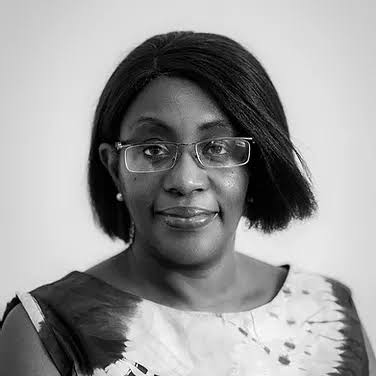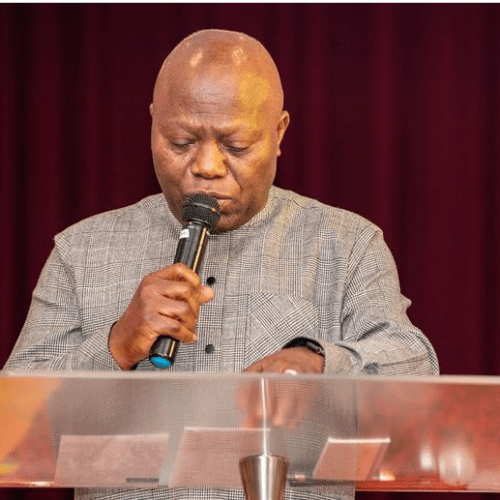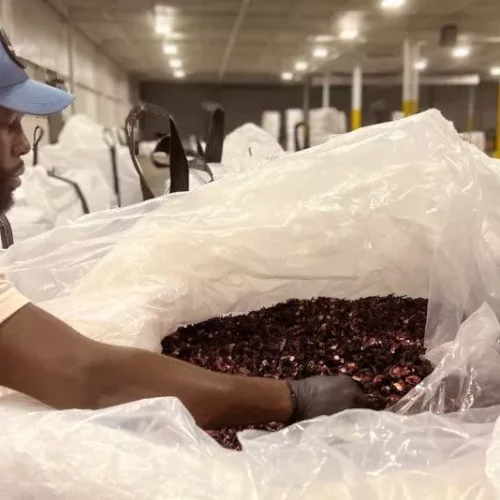Marie-Therese Sotunde was called to the Bar of England and Wales in 1988 [Middle Temple] and also has a first degree in Economics and Government and a postgraduate degree in Financial Economics. She has over 20 years experience of in operational, legal, and compliance risk management in the global financial markets with a specialist focus in the areas of debt capital markets, derivatives and securities and new business development.
Her track record spans legal and compliance roles at banking and financial institutions in Europe and Asia including Banque Indosuez [now Credit Agricole Corporate & Investment Bank]; Midland Montagu [now HSBC]; Mitsubishi Finance [now Mitsubishi UFJ Securities International plc] where in 1989 she joined the Corporate Finance Department as Assistant Manager and left 12 years later as Director and Co-head of Legal; The European Bank for Reconstruction and Development and Bayerische Hypo- und Vereinsbank AG [ now UniCredit Bank AG].
Marie-Therese has also spearheaded various interim executive management assignments in the European financial markets including [without limitation] the establishment of corporate governance framework [Swiss re Capital Markets]; developing legal risk management structures for derivatives transactions and the energy finance group [Goldman Sachs International]; researching and advising on the implementation of new businesses in emerging & frontier market jurisdictions [Citigroup]; coordinating cross border balance sheet pooling arrangements to meet regulatory requirements [Bank of America Merrill Lynch ].
In 2007 Marie-Therese Sotunde joined Ecobank Transnational Incorporated (ETI) as Chief Compliance Officer for the ETI Group. In 2009 she was engaged by TAK Continental Ltd., an international agribusiness concern, as Managing Director for the entire Francophone West Africa region, based in The Republic of Mali. She was also responsible for and provided oversight for the strategic corporate and planning advisory support function, with an emphasis on organizational change management and business development, for the TAK Agro Group.
In 2014 Marie-Therese moved to Nigeria to work as special assistant to the Chairman of Ancestral Holdings Ltd – with a focus on the consolidation of a number of corporate entities within a holding structure and the acquisition and subsequent integration of other entities into the holding structure. Currently, she is Managing Partner– at Providentia Consilium – a consulting firm that offers governance and management services to corporate entities with a view to achieving market sustainability and financial stability. In this interview with The Podium Magazine’s Taiwo Adekanye, Marie-Therese Sotunde dwells on various aspects of her life, career, and her perspectives on contemporary economic issues.
Who is Marie Therese Sotunde? Which words best describe your personality?
An insight into any personality is a tall order given that it is bound to be subjective depending on who one talks to. Different people tend to see different and varying sides of the same persona. In a nutshell – I see myself as quiet, adaptable in most situations, and very focused on what I perceive to be my life objectives.
Could you let us into your family background and childhood years? What memories would you like to share with us?

I am a product of mixed Nigerian heritage with ancestral roots in Remoland on my paternal side and Western Igboland on the maternal side. Although I was born in Ibadan (Western Nigeria, now Oyo State), my parents moved to Lagos shortly after to start a life in Lagos Colony as it was then known on the cusp of Nigeria’s Independence. It has to be said that my childhood years, like that of so many of my contemporaries of the time, would constitute what the English term as a “charmed life” by today’s standards.
In terms of particular memories – where does one start? There are so many memories that I would love to share. The ones that stick out, in particular, are the memories – as a three or four-year-old – of daily walks by the waterside as it then was, along Queen’s Drive, Ikoyi – Lagos; encounters with different species of bird life – flamingos, cranes, kingfishers immediately come to mind. I vaguely recall being taken out on canoe rides with the local fishermen who would paddle their canoes from the open sea into the creeks and lagoons of Lagos to have a rest from all night fishing. I doubt if, in today’s Nigeria, anyone would trust their young child to be taken out into the open sea in a fishing canoe by strangers.
You were called to the Bar of England and Wales in 1988, what were your aspirations then? Why did you decide to study Law?
Let us start with why I studied Law. Well, it was never on the agenda for me. I was always interested in languages and from an early age could speak fairly decent French, thanks to the combination of French lessons from an early age and at school, and most especially due to intense interactions after school hours with my dear French teacher, Mme Georgette Okigbo (of blessed memory), and her lovely daughters.
My aspirations to become a linguist were dashed when I got to school in England and the French teacher decided that her class was large enough and she could not take on any more pupils. To cut the story short, my mother decided for me that I should read Law. I was living in the UK at the time, a law degree on its own does not qualify me to do much and so I went to read for the Bar rather than qualify as a solicitor.
You also have a first degree in Economics and Government, and a postgraduate degree in Financial Economics. What motivated you to Economics after reading law?
My first degree is in Economics and Government. I read Law after I had gone for the Master in Economics. At first, Economics was just a subject that I chose to do for A Levels. 1970s UK was going through major economic changes at the time; l soon developed a passion for the subject as I was more or less living through the changes we were learning about in the classroom.
What has been your most challenging job?
This has to be the position I took working with a high-net-worth individual about 8 years ago. It was my first real exposure to a truly Nigerian working environment and nothing I had experienced working in other parts of West Africa could have prepared me for the culture shock.
How would you compare the European Financial market with the African Financial market?
There is no comparison. The European Financial markets have evolved and tend to be better structured, principally through well-thought-out policies and regulations, enough to take on and absorb any unforeseen shocks. One cannot speak for all of Africa; rather let us look at Nigeria since this is where we are. It is fair to say that the development of an efficient and robust financial market is hindered by many factors including but not limited to a central bank system which is highly politicized thus stifling any kind of free market intervention; this is also responsible for an inadequate regulatory structure; a weak capital market framework and a total lack of financial instruments capable of servicing growing financing needs. It does not help also that the legal system is unreliable.
Looking at the global financial market, how would you assess the Nigerian market?
I don’t. It would be unfair to make an assessment just now. Given my previous comparison with the European financial market, it is clear that a lot of work needs to go into bringing the Nigerian financial market out of its current state.
Given Nigeria’s rising debt profile and the Hon. Minister of Finance saying that Nigeria is not broke, how would you react to this?
Tough question. No one seems to have any real empirical data to work with in addressing the statement made by the Minister. The only source of information that I would be prepared to rely on is the debt sustainability analysis published by the Debt Management Office. However, that in itself presents a bit of a conundrum since it takes a while for the report to come into the public domain, invariably by which time the information is more or less out of date.
What are we not doing right in the management of Nigeria’s economy?
As far as I can tell, major stakeholders do not appear to be talking to each other. The perception is that the various government arms that should be working in tandem are operating in a “silo” format!
What are the highlights of your career milestones? What are your success stories?
The main highlight of my career was when I was appointed a Director at a leading international financial institution in the UK. The wins and successes in my career include accolades in recognition of my work ethic, fairly early on in my career.
What has life taught you? What are the indelible lessons you have learned in life?
I have learned that nothing is written in stone and we are not to take anything for granted – as Nigerians are wont to say, no condition is permanent!
What are your success tips and principles?
Never stop learning – don’t be afraid to try new things and make mistakes along the way. Focus on positive relationships – having a mentor or role model is a useful start.
Do you have any regret? Are there things you wish you had done or things you wished you hadn’t done?
I cannot think of any regrets. I believe that everything that I have experienced in life has happened for a reason.
What are your plans and aspirations for the short and medium term?
Short-term plans include sorting out a sustainable health and fitness regime. Medium-term plans include establishing a permanent base in Nigeria.





















